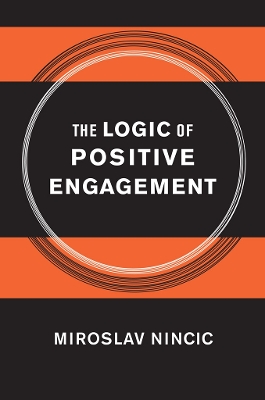Recent American foreign policy has depended heavily on the use of negative inducements to alter the behavior of other states. From public browbeating through economic sanctions to military invasion, the last several presidents have chosen to use coercion to advance U.S. interests when dealing with adversaries. In this respect, as Miroslav Nincic notes, the United States differs from many of its closest allies: Canada has long maintained diplomatic relations with Cuba, and several of the European democracies have continued diplomatic engagement with governments that the United States considers pariah regimes. In The Logic of Positive Engagement, Nincic outlines the efficacy of and the benefits that can flow from positive rather than negative engagement.
Nincic observes that threats and punishments may be gratifying in a symbolic sense, but that they haven't affected the longevity or the most objectionable policies of the regimes against which they are directed. Might positive inducements produce better results? Nincic examines two major models of positive inducements: the exchange model, in which incentives are offered in trade for altered behavior, and the catalytic model, in which incentives accumulate to provoke a thorough revision of the target's policies and priorities. He examines the record with regard to long-term U.S. relations with Cuba, Libya, and Syria, and then discusses the possibility that positive inducements might bring policy success to current relations with Iran and North Korea.
- ISBN10 0801463017
- ISBN13 9780801463013
- Publish Date 15 August 2011 (first published 21 July 2011)
- Publish Status Active
- Out of Print 29 April 2015
- Publish Country US
- Imprint Cornell University Press
- Format eBook
- Pages 224
- Language English
